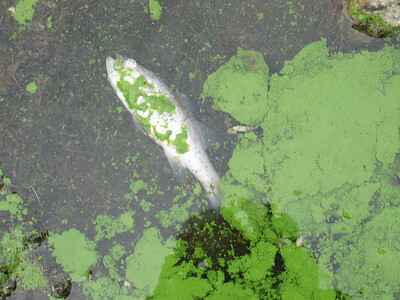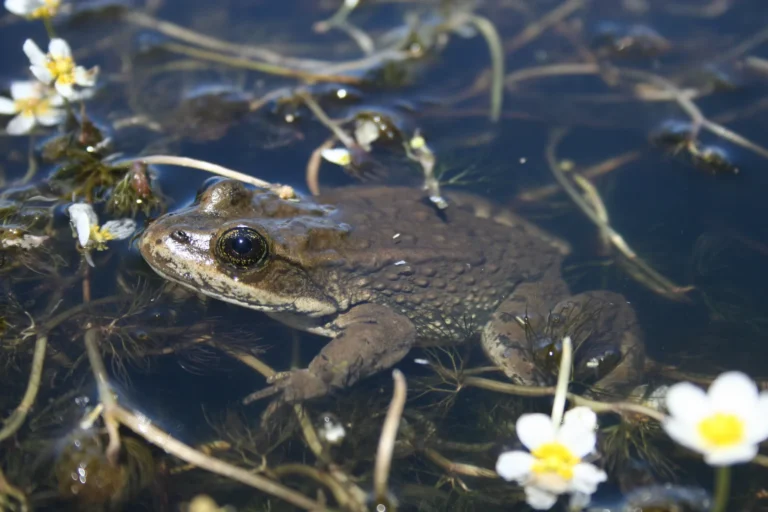5 Causes of Water Pollution Explained
Causes of water pollution are; cargo-oil spillage, poor waste management, unsustainable agriculture, submarine pipe leakage, and polluted stormwater runoff.
This article discusses the causes of water pollution and their individual attributes, as follows;
1). Cargo-Oil Spillage (as one of the Causes of Water Pollution)
In the energy industry, water pollution involves oil spills from tankers on a relatively-regular basis. This can be directly attributed to the fact that sea routes are a prominent choice for the transport of large quantities of oil and gas products; which are carried as cargo on maritime vessels.
Oil spillage causes water pollution by introducing significant amounts of foreign, toxic materials like volatile organic compounds (VOCs) into water bodies [1].
Ocean pollution by petroleum is a very popular topic of discussion with respect to the environmental impacts of energy resources that are regarded as unclean and unsustainable. It is also used as a point of argument in the defense of renewable and clean energy concepts, as well as of the agenda to achieve full-scale energy transition from fossil fuels to greener alternatives.
The release of liquid petroleum products from their containment-vessels into water bodies, in the form of oil spills, affects these water bodies, as well as their dependent organisms, adversely.
One of the effects of oil spills on the aquatic ecosystem (especially the marine biome) is a decrease in dissolved oxygen concentration. This has a direct influence on the survival rate of marine plants and animals, and exposes humans to health hazards as they interact with polluted water.
Other hazardous events that can arise from oil spill pollution of water bodies include fire hazards, and air pollution by volatile organic compounds as they evaporate.
An example of water pollution by oil spillage is the sinking of the MV Prestige oil tanker off the Galicia coast in Spain, on 19 November 2002. The incident led to the release of up to 70,000 tonnes of heavy oil and caused pollution that stretched for several thousand kilometers [2].

2). Poor Waste Management
Especially in modern municipalities, poor or inadequate waste management is a major cause of water pollution.
There are several possible scenarios for the phenomenon of waste-induced water pollution.
Improper waste management affects the water resources in a given area when waste materials (with special reference to toxic waste) are not effectively isolated from the environment.
Waste pollutes water in aquifers that occur beneath landfill sites, when these landfills are not equipped to protect groundwater from leachate fluids that are produced in the course of biodegradation of organic waste materials. In such cases inadequate management in the process of landfilling (a waste management-practice) causes water pollution.
Poor waste management causes pollution of water also when regional water bodies are not protected from illegal dumping. There are many variants to this unregulated dumping, with some being much more harmful than others.
In some areas (especially in developing countries), sewage facilities among other domestic waste-outlets are either absent or poorly developed, so that untreated fecal matter and wastewater are able to contaminate natural water bodies [4].
This can be very severe in its effects that range from aesthetic and ecological to human health-impacts.
Poor management of industrial waste also causes water pollution, when this waste is discharged or transported as runoff into water reserves [5].
3). Unsustainable Agriculture (as one of the Causes of Water Pollution)
Unsustainable agriculture is likely to cause water pollution because of the geographic and ecological proximity of soil, vegetation and water resources.
When agriculture is not practiced in a manner that is safe for the ecosystem, it often results in outcomes that can be hazardous.
Sources of agricultural pollution range from physical to chemical processes that introduce agricultural materials into water bodies.
Excessive use of artificial fertilizers, for example; can cause large amounts of these chemicals to be washed from soil during precipitation events, and transported into nearby rivers and streams. This causes nutrient-buildup and leads to excessive algal growth or eutrophication [3], that negatively impact the survival rate of aquatic organisms.
Other chemicals like pesticides and herbicides may also be washed into water bodies as runoff, and can cause pollution.
Agriculturally-induced water pollution can occur alongside other forms of environmental degradation like soil erosion; which could result from deforestation and overgrazing. Sediments carried by water in the process of erosion may be deposited as suspended solid particles in water bodies.

4). Submarine Pipe Leakage
Problems caused by leaking pipes include flow disruption, fluid loss, external and internal pollution.
With regards to water pollution, submarine pipe leakage is one of the possible causes of degradation, of water bodies that serve as routes for pipe-borne transport.
This kind of pollution has a similar effect to oil spill from maritime vessels, when the fluid being transported is a petroleum product [7].
Another form of water pollution from leaky pipelines occurs when pollutants flow into a pipe carrying water, and is often a result of low internal pressure [6].
5). Polluted Stormwater Runoff (as one of the Causes of Water Pollution)
Water pollution by polluted-stormwater runoff is common in urban areas where the presence of vast areas with impervious ground allows for extensive flooding and accumulation of large volumes of stormwater.
Sites where large-scale, intensive mining is being carried out may also produce large quantities of polluted stormwater.
For this kind of water pollution to occur on a large scale, there must be an already-polluted (and relatively-small) stream of water that is actively flowing under the influence of gravity. This stream is formed as a result of stormwater pollution, and is referred to simply as 'polluted runoff'.
Polluted runoff is floodwater that is highly concentrated with impurities. These impurities are usually derived in the course of flow, and comprise of insoluble solids, chemicals, gases and sediments.
Introduction of such polluted runoff into a larger water body will cause significant reduction of quality.

Conclusion
Causes of water pollution are;
1. Cargo-Oil Spillage
2. Poor Waste Management
3. Unsustainable Agriculture
4. Submarine Pipe Leakage
5. Polluted Stormwater Runoff
References
1). Amakama, N. J.; Knapp, C. W.; Raimi, M. O.; Nimlang, N. H. (2021). "Environmental Fate of Toxic Volatile Organics from Oil Spills in the Niger Delta Region, Nigeria." International Journal of Environment, Engineering and Education, 3 (3), pp.89-101. ⟨Available at: https://doi.org/10.55151/ijeedu.v3i3.64. (Accessed 25 April 2023).
2). Galieriková, A.; Materna, M. (2020). "World Seaborne Trade with Oil: One of Main Cause for Oil Spills?" Transportation Research Procedia 44:297-304. Available at: https://doi.org/10.1016/j.trpro.2020.02.039. (Accessed 25 April 2023).
3). Lee, G. F.; Jones-Lee, A. (2005). "Eutrophication (Excessive Fertilization)." Water Encyclopedia. Available at: https://doi.org/10.1002/047147844X.sw1606. (Accessed 25 April 2023).
4). Makule, D. E. (2000). "Pollution of water sources due to poor waste management--the case of Dar-es-Salaam." Schriftenr Ver Wasser Boden Lufthyg. 2000;105:117-21. Available at: https://www.semanticscholar.org/paper/Pollution-of-water-sources-due-to-poor-waste-case-Makule/c55e7f0784e7f5764ecfd39f5364cf56d763f28e. (Accessed 25 April 2023).
5). Odigie, J. O. (2015). "Harmful effects of wastewater disposal into water bodies: a case review of the Ikpoba river, Benin city, Nigeria." Tropical Freshwater Biology 23(1):87. Available at: https://doi.org/10.4314/tfb.v23i1.5. (Accessed 25 April 2023).
6). Saria, J. (2015). "Effects of Water Pipe Leaks on Water Quality and on Non-Revenue Water: Case of Arusha Municipality." Journal of Water Resources and Ocean Science 4(6):86. Available at: https://doi.org/10.11648/j.wros.20150406.12. (Accessed 25 April 2023).
7). Sun, Y.; Cao, X.; Liang, F. (2019). "Investigation on underwater spreading characteristics and migration law of oil leakage from damaged submarine pipelines." Process Safety and Environmental Protection 127(7). Available at: https://doi.org/10.1016/j.psep.2019.05.030. (Accessed 25 April 2023).




